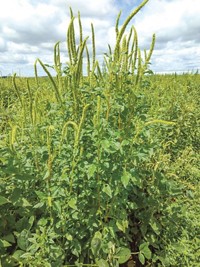Advertisement
Grab your lab coat. Let's get started
Welcome!
Welcome!
Create an account below to get 6 C&EN articles per month, receive newsletters and more - all free.
It seems this is your first time logging in online. Please enter the following information to continue.
As an ACS member you automatically get access to this site. All we need is few more details to create your reading experience.
Not you? Sign in with a different account.
Not you? Sign in with a different account.
ERROR 1
ERROR 1
ERROR 2
ERROR 2
ERROR 2
ERROR 2
ERROR 2
Password and Confirm password must match.
If you have an ACS member number, please enter it here so we can link this account to your membership. (optional)
ERROR 2
ACS values your privacy. By submitting your information, you are gaining access to C&EN and subscribing to our weekly newsletter. We use the information you provide to make your reading experience better, and we will never sell your data to third party members.
Agriculture
Enko Chem raises $45 million to discover small-molecule pesticides
Firm says platform that exploits pest-killing modes of action will speed product innovation
by Melody M. Bomgardner
June 29, 2020

Enko Chem, a Boston-area start-up specializing in small-molecule pest control products, has raised $45 million in a second round of funding led by the Bill & Melinda Gates Foundation, bringing its total funding to $66 million. The company, which was founded in 2017, says its approach to discovery and development will revive what it calls the pesticide industry’s stalled R&D pipeline.
Jacqueline Heard founded Enko and is the firm’s CEO. She is a venture partner at Anterra Capital, an early Enko investor. Trained as a plant pathologist, Heard worked at agriculture start-ups before moving to Monsanto. Enko’s chief science officer, Tom Meade, also has big agchem company experience: he was recently global leader for trait discovery at Dow AgroSciences, now part of Corteva.
Heard says Enko is different from the big companies. Instead of using traditional high-throughput methods to screen molecules for pesticide activity, it uses DNA-encoded libraries to select candidates from among billions of molecules. The technique, pioneered in the drug industry, is less expensive than older methods and allows researchers to run parallel experiments with different targets.
And while major agriculture firms such as Bayer and Corteva typically screen for molecules that result in dead pests, Enko screens for specific modes of action. That means scientists will know how each successful candidate works to kill an insect, fungus, or weed.
“You can improve safety and outcomes if you know a lot more about the target in the pest you are trying to inhibit,” Heard says. “It gives us options to combat pesticide resistance and allows us to address safety and efficacy at the very start of the process.”
Heard says Enko’s goal is to take successful candidate molecules and, using downstream chemistry, develop them into cost-effective, safe products that are chemically differentiated from pesticides on the market today.
Enko will partner with the Gates Foundation to bring its pest-control products to farmers in sub-Saharan Africa and South Asia who generally don’t have access to the newest solutions. “There is a commercial market for products in these places that are underserved,” Heard says, “but they need a more affordable price.



Join the conversation
Contact the reporter
Submit a Letter to the Editor for publication
Engage with us on Twitter